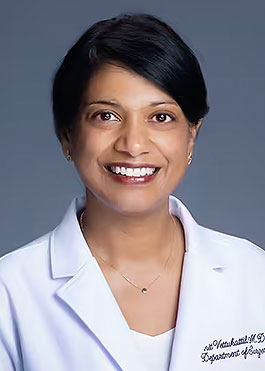
Undergoing surgery can be an overwhelming experience for many patients. It's common for patients to feel anxious and helpless during the process. However, patients have more power in the success of their surgery than they may be aware. There are steps patients can take regarding lifestyle choices that can increase the likelihood of a successful recovery.
Diet
One of the patient’s most critical lifestyle choices is eating a healthy and balanced diet. Consuming a diet rich in fruits, vegetables, whole grains and lean protein (e.g. grilled chicken or fish) can provide essential nutrients that the body needs to heal and recover. It is well known in surgery that a patient’s preoperative nutrition plays a critical role in their surgery. Surgery is a trauma to the body. A healthy diet of greens and lean proteins builds a physiologic reserve to be able to tolerate surgery and then helps with healing after surgery.
Furthermore, a healthy diet will help achieve a healthy weight. Being overweight is a negative risk factor for many diseases (e.g. breast and other cancers, heart disease) and surgery is no exception. Being overweight complicates surgery. For example, most hernia repairs are less successful in patients who have a BMI greater than 35 and smoke or have BMI greater than 40, even if they don’t smoke. Those patients are much more likely to have complications from their surgery, such as wound infections and delayed healing. Even when they heal in the short term, these patients are at high risk for recurrence of the hernia and needing surgery again in the future. For these reasons, surgery may not be offered to such patients until they lose weight. Patients can make specific changes to their diet, such as incorporating more fruits and vegetables, reducing their intake of processed foods and sugary drinks and choosing lean protein sources like chicken or fish.
Exercise
Regular exercise is another essential lifestyle choice that patients should consider before and after surgery. A patient’s preoperative function predicts their postoperative outcome. I have seen 80-90-year-old patients undergo surgery and recover faster than patients half their age. What these patients have in common is how physically fit they are. Patients who are physically active and don’t lead sedentary lives tend to recover more quickly than those who don’t. Exercise helps build and maintain muscle strength and flexibility. Regular low-impact exercises, such as walking, swimming or low weights, can help increase flexibility, build strength and improve overall health.
After surgery, patients may feel tired and weak. Surgery takes a toll on the body, separate from the area being operated on. Engaging in low-impact daily physical activity, such as casual walks daily for 15 minutes, can improve energy and reduce the risk of blood clots, allowing patients to get back to their normal lives.
Other medical conditions
Moreover, patients can improve their surgical recovery by being in control of their medical conditions. High blood pressure, cholesterol and diabetes all affect surgery. These factors increase the risk of heart disease and therefore, increase the risks of anesthesia. Additionally, poorly controlled diabetes delays wound healing and increases risk of wound infections. Generally for surgery, patients should maintain a hemoglobin A1C of seven or less, especially in surgeries where mesh or other prosthetics are needed.
Smoking
Finally, avoiding smoking is another critical lifestyle choice that patients should make before and after surgery. Smoking negatively impacts all aspects of surgery. It can impair lung function, increase the risk of infection and delay wound healing. By quitting smoking, patients can reduce the risk of complications and promote healing.
Adopting healthy lifestyle habits before and after surgery can significantly impact the healing process and reduce the risk of complications. Patients can make critical lifestyle choices to improve their overall health and recovery by eating a healthy and balanced diet, engaging in regular exercise, maintaining chronic conditions and avoiding smoking. It's important to emphasize the importance of these guidelines to patients and provide them with the necessary resources and support to make these lifestyle changes. By working together, we can help our patients achieve the best possible outcome and improve their overall quality of life.
As appeared in the Summer 2023 issue of Scripts.

